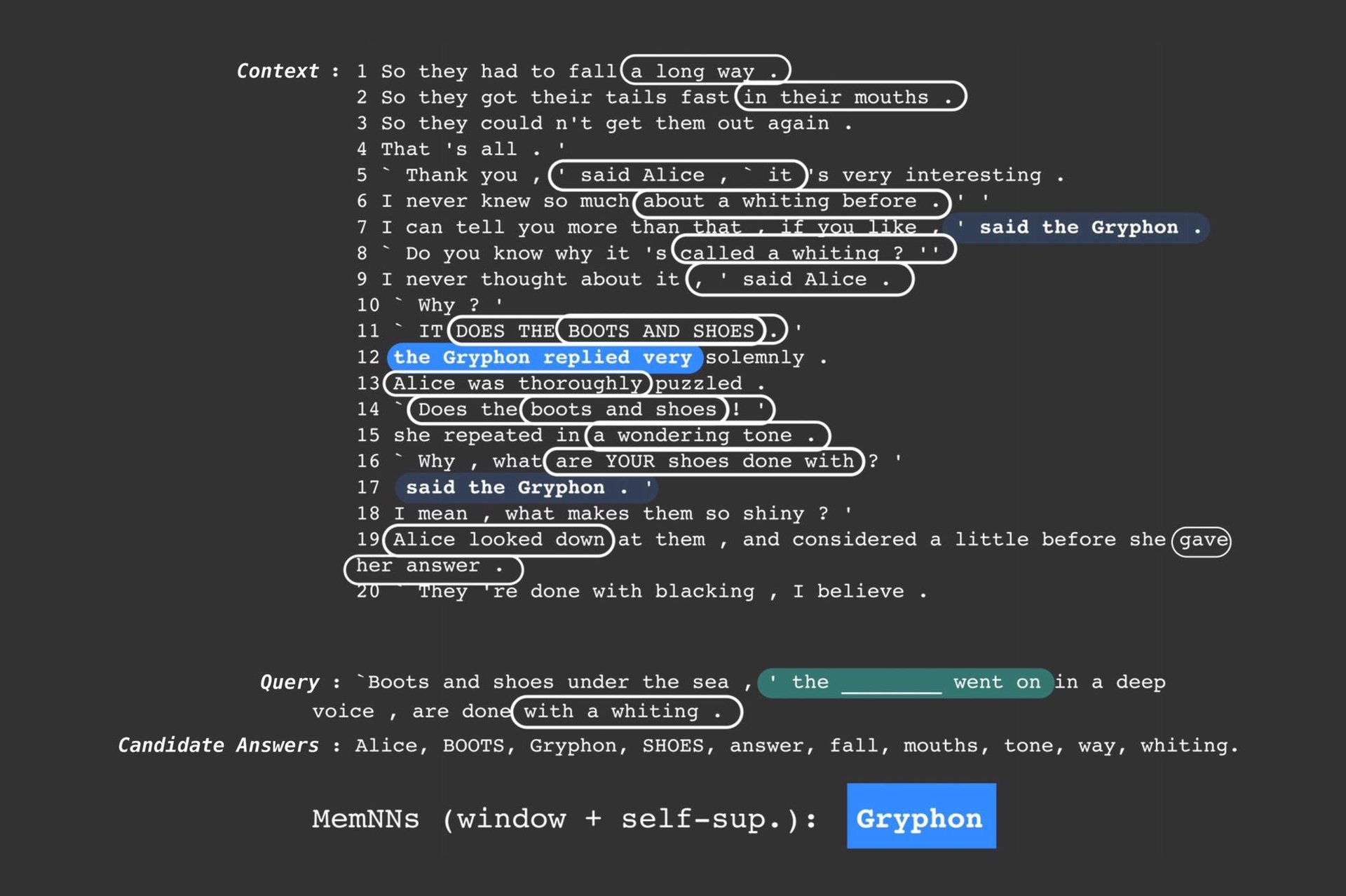To be more like us, Facebook’s AI is reading itself classic children’s books
Alice in Wonderland has always been more than a beloved children’s book: the story is a fantasy, a cautionary tale, and a mysterious tangle of allegories all in one. ”Can we teach AI to read Alice in Wonderland?” Mark Zuckerberg wondered.


Alice in Wonderland has always been more than a beloved children’s book: the story is a fantasy, a cautionary tale, and a mysterious tangle of allegories all in one. ”Can we teach AI to read Alice in Wonderland?” Mark Zuckerberg wondered.
Facebook this month announced that it’s using several data sets to train its artificial-intelligence (AI) deep-learning neural nets, which could be used in the future to act as virtual assistants, make predictions, and perform other human-like tasks.
One of the data sets the company is using for its AI training is a collection of more than 100 classic children’s novels—including The Jungle Book, A Christmas Carol, Peter Pan, and Little Women—taken from the online library Project Gutenberg. (A complete list has been compiled by New Scientist here.)
By giving these books to the AI to read, Facebook is testing the program’s comprehension skills and improving its language capabilities. “Our team taught the computer to look at the context of a sentence and much more accurately predict those more difficult words—nouns and names—which are often the most important parts of sentences,” Facebook’s CEO explained in a post.

“The computer’s predictions were most accurate when it looked at just the right amount of context around relevant words—not too much and not too little,” he said, calling it the “Goldilocks Principle.”
Results from these tests, Zuckerberg said, are being incorporated into M—the zany digital assistant currently being tested within Facebook Messenger—though the company’s research team still has “a long way to go” before its AI can understand and respond to text (and speech) as well as humans go.
It seems machines, just like children, need to do a fair bit of growing up before they can fully take in all the nuances of language and literature.